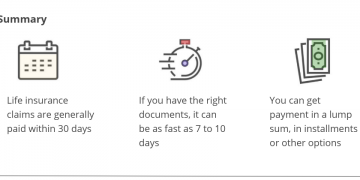After the U.S. High Court in June upset the sacred right to early termination, legislators in different states started establishing an assortment of one or the other purported supportive of the decision or hostile to fetus removal regulations. One such regulation in Georgia came full circle in July. Georgia’s fetus removal regulation boycotts early termination where a “fetal heartbeat” can be identified by a specialist.
In this way, you might be thinking about what the Georgia fetus removal regulation, or some other early termination regulation, has to do with charges. All things considered, as of late, Georgia’s Department of Revenue explained that a human hatchling with a distinguishable fetal heartbeat can meet all requirements for an expense derivation — in the event that you live in Georgia.
Yet, regardless of whether you’re not a Georgia occupant, a few different states could follow after accordingly and begin offering charge derivations for unborn youngsters. And keeping in mind that tax reductions are by and large helpful, baby charge allowances bring up new and significant duty issues for states, the central government, and yes — citizens like you.
Georgia’s Fetus Tax Deduction
As of late delivered guidance, the Georgia Department of Revenue said that on the off chance that you’re a Georgia occupant, your embryo qualifies as a ward for charge purposes as of July 20, 2022. That implies that pregnant individuals living in Georgia might have the option to guarantee a duty derivation for their baby, or hatchlings, on their state government forms.
For what reason is this incident at this point? All things considered, Georgia’s fetus removal regulation (likewise realized by its bill number, HB 481, or its title, The Living Infants and Fairness Equality Act) was first passed in 2019. Yet, it was tangled in prosecution on the grounds that around then, its fetus removal limitations were in conflict with Roe v. Swim. After the U.S. High Court upset Roe, Georgia’s early termination regulation was permitted to produce results and was as of late revised to say that a baby is a legitimate individual in Georgia.
In this way, under Georgia’s regulation, how much the reliant individual exclusion is $3,000 for each unborn kid. The Georgia Department of Revenue expresses that for returns petitioned for the charge year 2022, the direction applies to any citizen who has an unborn youngster with a recognizable human heartbeat whenever on or after July 20, 2022, and through December 31, 2022. Right now, no data is accessible on how the unborn kid derivation will apply after 2022.
Individuals in Georgia who need to guarantee their baby, or embryos, may need to submit clinical records or other documentation to help with the allowances. Under Georgia regulation, a specialist should decide if a supposed “fetal heartbeat” can be recognized. The state’s direction brings up that this can some of the time occur as soon as six weeks into a pregnancy.
Subordinate Tax Credits
Government regulation doesn’t perceive an embryo as an individual for charge purposes, so a baby can’t be guaranteed as a ward on your bureaucratic assessment form.
All things considered, rules for guaranteeing a ward on your government return rely upon the IRS meaning of a “qualifying subordinate.” That’s commonly a kid under 19 years old, or under 24 years of age, assuming that they are a full-time understudy. However, a passing reliant can likewise be an offspring of all ages that is for all time or completely incapacitated or a supposed “qualifying relative.”











































































